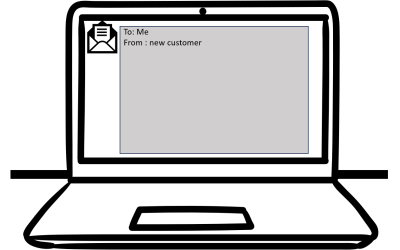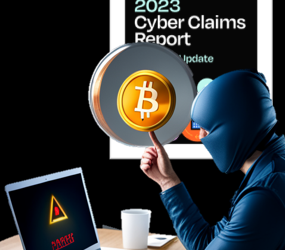This sounds like a nightmare that could never happen.
US soldiers have been putting sensitive information online in non-secure third party websites. It defies belief, yet we’re reading that it happened. The story popped up on ‘Gizmodo’ .
It is alleged that US Soldiers were saving sensitive information on a couple of common flashcard sites, presumably of things they were trying to memorise and learn. It seems these are common learning tools used in universities to help students memorise facts. That works well so long as the facts aren’t top secret! Even worse, their settings were on ‘public’ not ‘private’!

It is a classic warning about the risk of people, however well intentioned, saving critical data online in places the organisation is unaware of, and can’t control. That’s why our KARE FOUNDATION proactive cyber-security plan helps identify use of these sites in your organisation.
For more detail : Why you need to know all the cloud services that your organisation uses – part 2 – (US DoD Nuclear Secrets!) – IT Solutions and Managed Services (kinetics.co.nz)
Shadow IT is part of our 10-point cyber-security check list
While there is no single layer of technology that can guarantee you will be safe from hackers, you can reduce your risk by adding layers of protection. How many of our 10-point check list are in place for you?
Would your cyber-security have saved you from this hack attempt?
This is a real and very clever 'spear-phishing' attempt that one of our legal clients in Auckland received today.Would you have opened it? Would your IT have protected you?To: Me From : new customer Hello, My Husband and I are looking to buy a property (First-time...
Is it really you?
News that an elderly woman was tricked out of $100,000 over Facebook won't be a surprise to regular readers. She was fooled into thinking she was talking to a friend, and then sending money to access some make-believe Covid fund. AI makes it easy to speak in...
Ransomware claims increase 27%
The Coalition Insurance "2023 Cyber Claims Report: Mid-year Update" highlights the changing nature of the cyber threat landscape that businesses are currently facing, with a record surge in claims severity compared to the previous year. This is US data but it tends...
Webinar Replay : Learn How to Protect Yourself from the Darkweb Now
What does it mean If your personal details are leaked on the darkweb? Learn how you can manage your risks.The darkweb is a network of websites and servers that are not indexed by traditional search engines and require special software to access. It's a place where...
Protect Yourself from AI Phone Scams: A Terrifying New Trend
The rise of AI phone scams has brought personal targeting to a whole new level. Scammers are using AI-created fake texts (smishing) or even AI -created cloned voices of social media users. It has already found its way to New Zealand shores - New AI combats text...
KARE – Will your support plan need to change?
2008 was a long time ago. New Zealand was a different place. The IT maintenance needs of business were so much simpler! Locally, there was a change of government. Internationally, we were watching the start of the GFC with the fall of Lehman Bros bank. In the...
Putting a light on the dark web with upgraded monitoring
What's the Dark Web? The Dark Web, is often associated with a veil of notoriety, is a part of the internet intentionally hidden from traditional search engines. It requires specific software, such as Tor, to access, offering an anonymous platform where privacy is...
When does using CC in an email become a privacy breach?
Sometimes you need to use the BCC (Blind carbon copy) function in email! Last month, the email addresses of 147 gun owners were shared in an email. Whoever was sending the email put everyone in the 'cc' line. That meant their email addresses could be read by anyone...
Don’t accidentally throw away your WiFi!
Canon just sent out a warning. Wipe your old printers before selling/discarding them! It seems that printer technicians can access the memory and go into settings to uncover old Wifi passwords. Their advisory seems to suggest wiping the settings a couple of times...
Avoiding Subscription Bombs
If 10,000 emails suddenly flooded your inbox, what would you do? Suddenly any real messages will be lost in the blitz of spam that's overloading your screen. It is hard enough to delete all those messages, let alone filter out the genuine ones from the flood. This...










